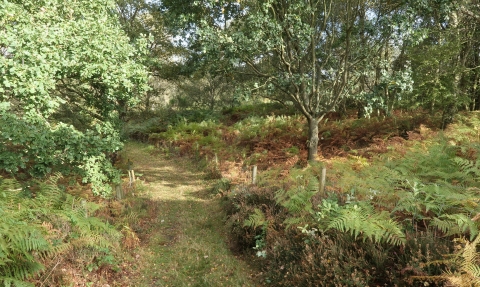
Photo by Jim Voce
Species Habitat Improvement Grants - Case Studies

Boundary Wood and Ollerton Pit Wood
Forestry England was awarded a grant to restore ponds on Boundary wood and Ollerton pit wood.
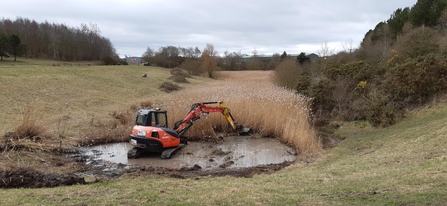
Boundary Wood before Miner2Major's work
Boundary Wood, is a young woodland with planted broad-leaved and conifer area interspersed with wildflower meadow and a pond. The pond has become choked up with reeds and shaded out by the surrounding trees. These are contributing to the pond drying up and degrading the suitability for amphibians, insects, and birds.
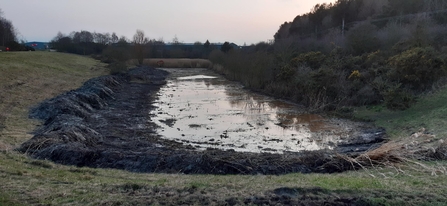
Boundary Wood after Miner2Major's work
The grant has allowed Forestry England to engage a contractor to remove the majority of the reeds from the pond with an excavator and remove the excess silt build up which has now created deeper open water areas. Trees were also cleared from around the edge of the pond by Forestry England staff and volunteers, the cut trees were stacked as log and brash piles creating suitable hibernacula habitat for reptiles and amphibians.
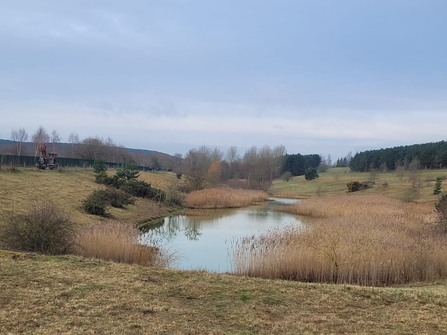
Ollerton Wood before Miner2Major's work
Ollerton Pit Wood once a former colliery site is now a site containing a mosaic of woodland, meadow and wetland habitat. With the grant Forestry England were also able to use the contractor with the excavator, to remove areas of reed that were encroaching too far into the open water in a section of the pond. As well as being able to build up the original island above the current water level, making it more suitable for nesting birds.
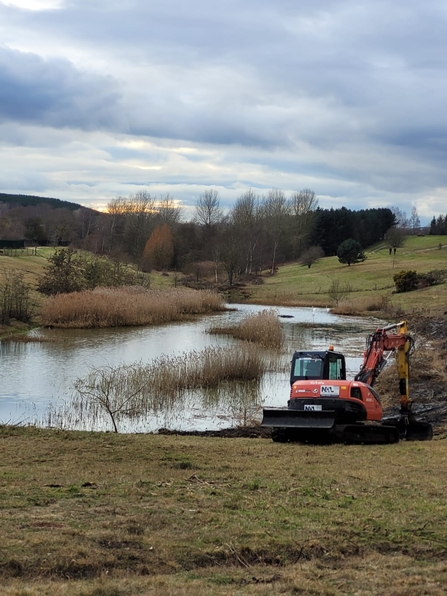
Ollerton Wood after Miner2Major's work
Forestry England staff and volunteers will ensure the ponds are managed to a high standard into the future by monitoring any regrowth in and around the ponds and removing as necessary, as the ponds are now in a more manageable state.
Spa Ponds Nature Reserve
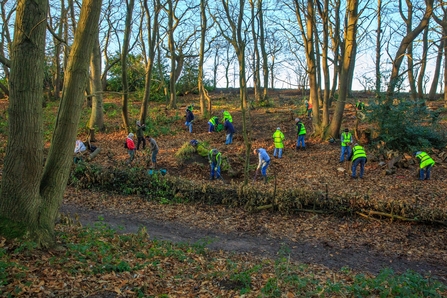
FTNCG volunteers at work restoring woodland at Spa Ponds
Forest Town Nature Conservation Group (FTNCG) was awarded a grant to create new habitats and restore existing habitats on Spa Ponds Nature Reserve. This is an important and much-loved wildlife site that offers the local community opportunities to connect with nature and improve physical and mental health & wellbeing through habitat work parties, biodiversity monitoring and wildlife engagement events.
The project involved creating new woodland understory whilst diversifying the age structure of the wood resulting in the creation of new glade areas, which were enhanced by acid grassland and wildflower seed sowing.
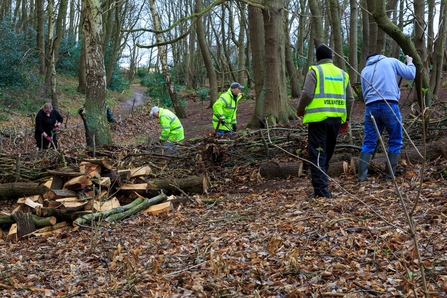
Volunteers making dead hedges to benefit invertebrates
Through this woodland restructuring work, gave opportunity to create no fewer than two dozen wood piles including dead hedges of various lengths, sizes, and styles across the reserve as well as creating more standing dead wood. The increase in standing and ground level dead wood is beneficial to a number of invertebrates such as beetles and moths.
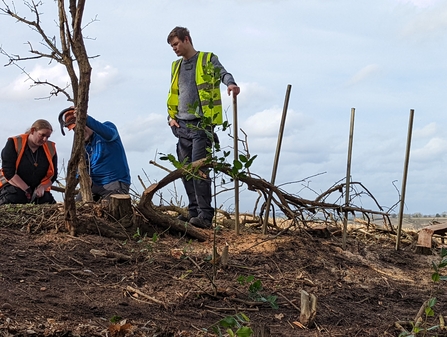
A new hedgerow being laid, providing a home for wildlife
The project also enabled FTNCG to gain professional guidance on hedgerow improvement / restoration work which involved hedge laying where possible and planting up gaps along a 100m length of hedgerow on the reserve. The hedgerow restoration work, in conjunction with the creation of dead hedges, are providing wildlife corridors for a range of invertebrates and small mammals.
This project is helping Spa Ponds nature reserve contribute to the establishment of the nature recovery network by creating and expanding locally available habitats for pollinating invertebrates increasing connectivity, linkage and providing a ‘stepping stone’ into a National B line.
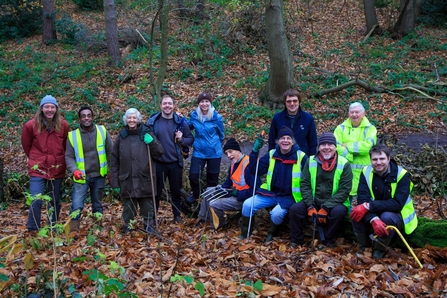
Volunteers were at the heart of the physical delivery of this project, attracting 77 unique volunteers who delivered more than 1,150 volunteer hours. Project volunteers were supported to develop a range of conservation management skills such as basic hedgerow management, crown raising / pruning and felling small trees safely. FTNCG has been awarded a second Miner2Major grant to undertake field surveys of terrestrial invertebrates, to establish a baseline that will help the group monitor and measure biodiversity gains arising from habitat improvement projects.
To find out more about FTNCG visit the Forest Town Nature Conservation Group (FTNCG) home page.

Miner2Major is a Landscape Partnership scheme focused on the heritage of Sherwood Forest in Nottinghamshire. It is led by a partnership of local authorities, conservation groups and community organisations. You can find out more by visiting the scheme website.
